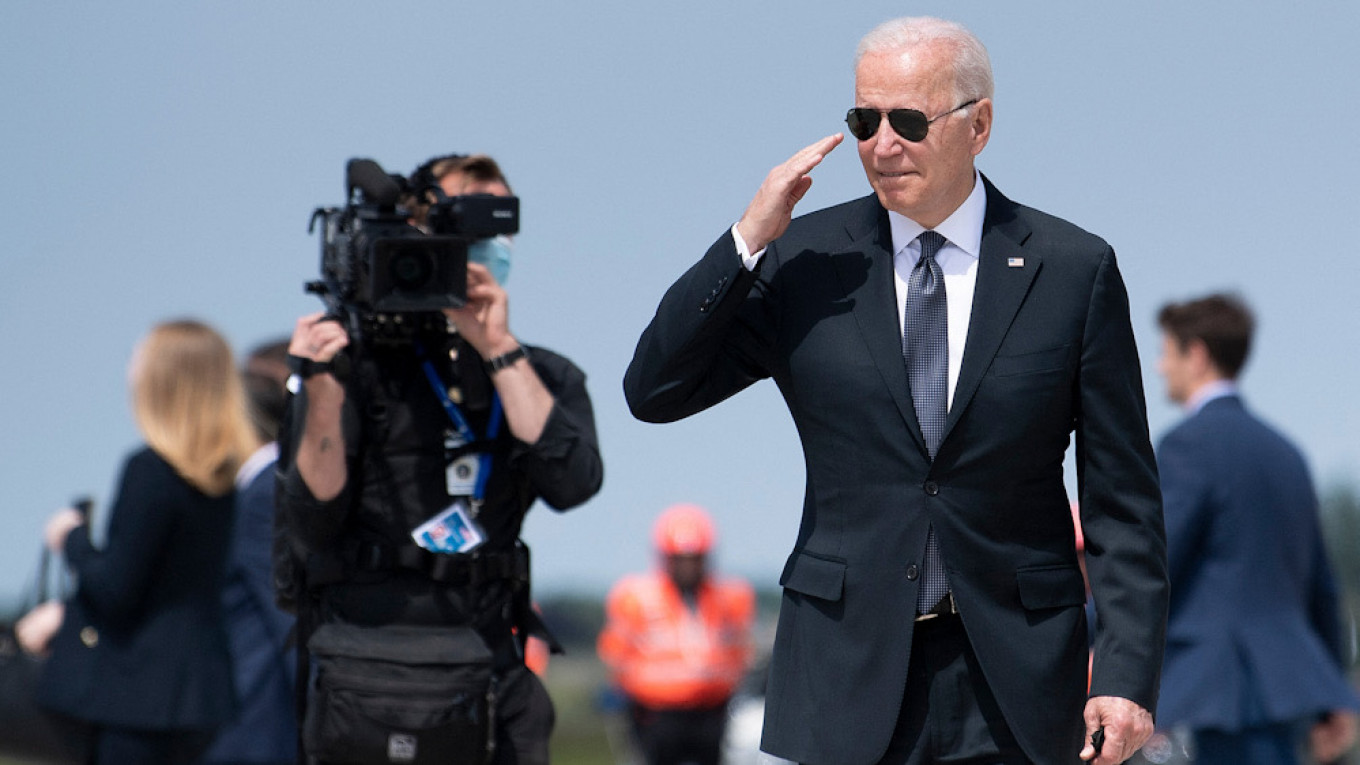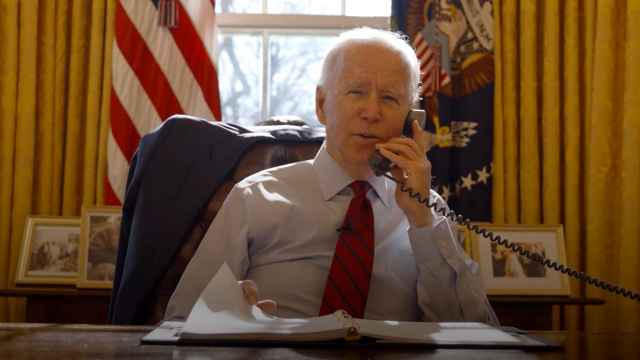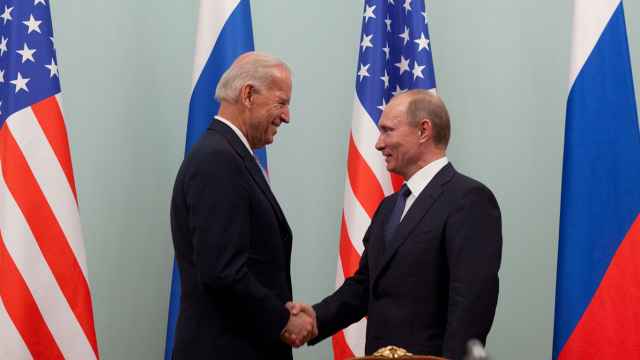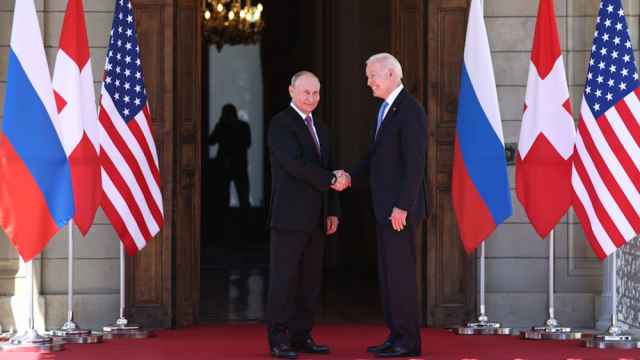Russian leader Vladimir Putin and U.S. President Joe Biden are due to meet in Geneva on Wednesday at a time when the relationship between the two countries is at its most tense since the Cold War.
Here are key issues expected to be on the agenda:
Election meddling, cyberattacks
For Washington, a key complaint is what it characterizes as persistent and combative Russian cyberactivity, namely meddling and interference in elections that it says have been carried out either by Russian security services or hackers with links to the Kremlin.
Biden's administration brought sanctions against Russia in April in response to the SolarWinds cyberattack that targeted federal organizations and more than 100 U.S. companies.
Washington at the same time also brought penalties against Moscow for allegedly meddling in the 2020 presidential election.
More recently, the White House linked Russia to a cyberattack against the global meat processing giant JBS. Biden said the United States was "looking closely" at retaliatory measures.
Russia has always denied the claims, and in turn has accused Washington of backing opposition groups opposed to the Kremlin and says the West is financially backing organisations and media critical of Russian authorities.
Navalny, human rights
Biden has said he will reiterate Washington's commitment to "human rights and dignity" at the summit and has repeatedly voiced support for Russia's increasingly embattled opposition.
Ahead of the summit, Biden said it would be a "tragedy" if Putin's main opponent, Alexei Navalny, were to die.
Russia's opposition has been hit with a series of legal decisions that has reversed years of work to garner support across the country and Navalny is serving a prison term in a penal colony.
Putin has in turn accused Washington of "double standards" and of seeking to interfere in Russian domestic affairs.
He defended protesters who stormed the Capitol, saying they had legitimate political demands and has said he would not be lectured on human rights by Washington.
Arms control, conflicts
Although Moscow and Washington have in recent years accused each other of breaching security agreements, this is still one area in which the old Cold War foes have found common ground.
The countries ultimately scrapped the historic Intermediate-Range Nuclear Forces Treaty after former president Donald Trump quit the accord in 2019, citing Russian violations.
Putin in June formally removed Russia from the Open Skies agreement that allowed signatories to fly surveillance flights and share results with allies after the U.S. exited last year.
But Putin and Biden extended in February the New START nuclear treaty – the last remaining arms reduction pact between Russia and the United States.
Putin has warned of a new arms race and made much of Russia's next generation weapons that he says render Western missile defense systems obsolete.
Tensions persist over conflicts in Syria, Libya and Ukraine. In April, Russia amassed more than 100,000 troops near the Ukrainian border and in Crimea, prompting warnings from NATO.
Biden insisted this week he was "not looking for conflict with Russia, but that we will respond if Russia continues its harmful activities."
Diplomatic tensions
Diplomatic relations between Moscow and Washington have all but broken down since Biden took office.
Russia in March took the rare step of recalling its ambassador after Biden likened Putin to a "killer," and said the U.S. envoy likewise should return to Washington.
When the United States announced the hacking sanctions against Russia in April it also expelled 10 Russian diplomats. Moscow retaliated in kind and barred the U.S. Embassy from employing foreign nationals.
In May, Russia formally designated the United States an "unfriendly" state. The only other country on that list is the Czech Republic.
Prisoners
Putin, ahead of the summit, renewed an offer to swap prisoners after Biden said U.S. citizens detained in Russia would be on the agenda.
Former U.S. marine Paul Whelan was jailed for 16 years by Russia for espionage. He has urged Biden to arrange an exchange and said in a recent interview he was victim of hostage diplomacy.
Another U.S. citizen, Trevor Reed, was sentenced to nine years in prison in 2020 on charges of assaulting Russian police officers while drunk.
Moscow could be eyeing the return of the notorious Russian arms dealer imprisoned by the United States, Viktor Bout, and a contract pilot and alleged drug trafficker, Konstantin Yaroshenko.
Bout, known as the "Merchant of Death," is thought to be the inspiration for the title character in the 2005 film "Lord of War" starring Nicolas Cage.
His elderly mother has appealed to both Biden and Putin to negotiate her son's release so she can see him again while still alive.
A Message from The Moscow Times:
Dear readers,
We are facing unprecedented challenges. Russia's Prosecutor General's Office has designated The Moscow Times as an "undesirable" organization, criminalizing our work and putting our staff at risk of prosecution. This follows our earlier unjust labeling as a "foreign agent."
These actions are direct attempts to silence independent journalism in Russia. The authorities claim our work "discredits the decisions of the Russian leadership." We see things differently: we strive to provide accurate, unbiased reporting on Russia.
We, the journalists of The Moscow Times, refuse to be silenced. But to continue our work, we need your help.
Your support, no matter how small, makes a world of difference. If you can, please support us monthly starting from just $2. It's quick to set up, and every contribution makes a significant impact.
By supporting The Moscow Times, you're defending open, independent journalism in the face of repression. Thank you for standing with us.
Remind me later.






